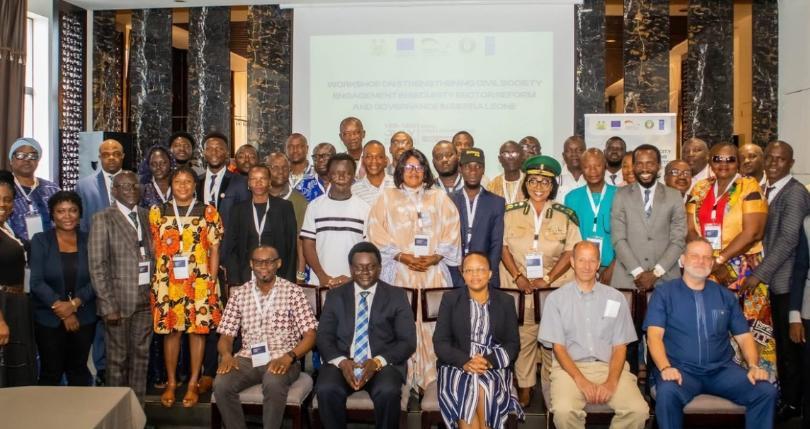Africa-Press – Sierra-Leone. A coalition of civil society organizations under the banner of the National Election Watch (NEW) has expressed strong preference for the First-Past-The-Post (FPTP) electoral system, following a national dialogue on electoral reform held in response to recommendation 78 of the Tripartite Committee Report on Electoral Systems and Management Bodies Review.
The civil society dialogue, held on the 11th and 12th of June 2025 at the Bank of Sierra Leone Complex in Freetown, brought together representatives from community-based organizations, trade unions, the Inter-Religious Council, professional bodies, the media, and other stakeholders. The event aimed to deliberate on the most suitable electoral system for Sierra Leone’s unique political and social context.
After two days of intensive discussions and presentations from technical experts, civil society leaders voted decisively in favour of First-Past-The-Post, with 57.9% supporting the system, 31.6% advocating for a mixed-method electoral system, and only 10.5% backing Proportional Representation (PR).
Those in favour of FPTP cited several key reasons: Simplicity and Clarity: It is easier for citizens to understand compared to PR. Direct Representation: Voters know their elected representatives and hold them accountable. Transparency and Verifiability: Election results are clear and can be verified by the electorate.
Participants also pointed to widespread dissatisfaction with the Proportional Representation system used during the 2023 elections. They argued that the system was imposed with limited public awareness and no meaningful consultation. Concerns included the lack of transparency in how candidates were selected, the dominance of party leaders in candidate selection under closed lists, and the exclusion of independent candidates and smaller political parties.
According to dialogue participants, PR made it difficult for voters to identify their representatives, weakened the link between constituents and lawmakers, and marginalized local voices. There was also criticism of dysfunctional ward committees and the perceived failure of the 2023 system to foster inclusive governance and local development.
While support for PR was minimal, some participants who backed the system recommended improvements such as an open-list constituency-based PR, greater public education, a lower or no threshold for seat allocation, and stronger inclusion of women, youth, and Persons with Disabilities.
Supporters of a mixed-method electoral system proposed using FPTP for presidential, mayoral/chairperson, and councilor elections, while PR could be used for parliamentary representation. They believe this approach would balance grassroots representation with broader inclusion of marginalized groups.
In their final position, civil society stakeholders called on the Office of the Attorney General and Minister of Justice to design an electoral system that:
Is simple and understandable Ensures 30% female representation, in line with the Gender Equality and Women’s Empowerment Act Allows independent candidates and smaller parties to compete effectively
Is transparent and verifiable Maintains the authority of voters over party leaders in choosing representatives They also emphasized that no electoral system can succeed without broader reforms to the electoral environment, including promoting peace, accountability, and inclusivity in the democratic process.
The dialogue represents a significant step in civil society’s contribution to shaping a more inclusive, fair, and representative electoral framework ahead of future elections in Sierra Leone.
For More News And Analysis About Sierra-Leone Follow Africa-Press






